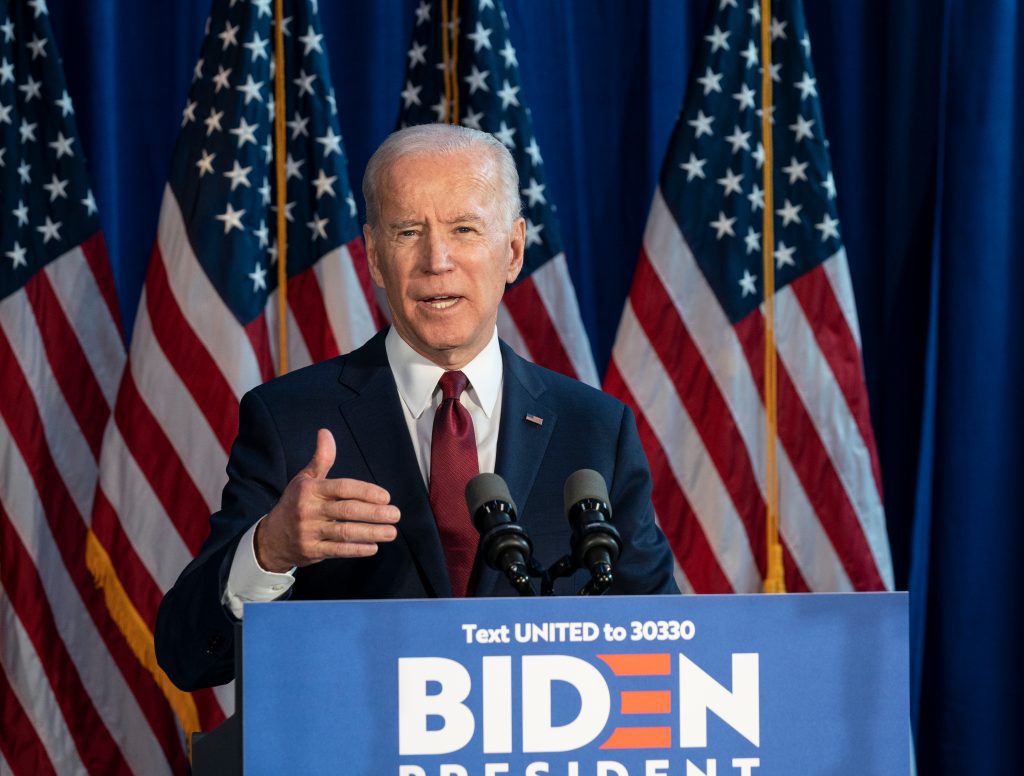U.S. construction stakeholders are hailing Senate approval of President Joe Biden’s $1.2-trillion infrastructure bill but acknowledge there are still hurdles to overcome before the money starts flowing.
The U.S. Senate passed the Infrastructure Investment and Jobs Act on a 69-30 vote Aug. 10 in a rare display of bipartisanship.
“It’s one step closer to passing,” said Brian Turmail, vice-president of public affairs for the Associated General Contractors of America (AGC).
“There’s been so much talk around passing a large infrastructure bill for years now in the United States and it almost feels like Charlie Brown out there with the football that Lucy pulls away at the last minute. So seeing the bill passed with pretty broad bipartisan support from the Senate makes it feel that much more likely that the measure will finally be passed and enacted into law.”
Association of Equipment Manufacturers senior vice-president of government and industry relations Kip Eideberg issued a statement commending the Senate for “passing a bold and bipartisan bill that will make a transformational investment in our nation’s infrastructure.”
A key breakthrough in negotiations came Aug. 6, when Democrats and Republicans reached a deal on the cornerstone of Biden’s agenda.
In a statement, North America’s Building Trades Unions president Sean McGarvey praised “committed lawmakers and the Biden Administration for coming together to craft bipartisan legislation to address our nation’s infrastructure needs. This robust package will strengthen neglected communities, create millions of American jobs and reestablish America’s standing among global competitors.”
The next step will be House of Representatives consideration and approval. AGC CEO Stephen Sandherr issued a statement after the Senate vote acknowledging that some members of the House have signalled they intend to delay approval of Biden’s infrastructure bill until an unrelated spending bill is also approved.
“The last thing Washington should do is hold a much-needed, bipartisan infrastructure bill hostage to partisan politics,” Sandherr stated. “Delaying action on the infrastructure measure will hurt the economy and deny workers opportunities to start high-paying construction careers.
“It is time to put people back to work instead of paying them to stay home. That is why we are urging the House to quickly pass the bipartisan infrastructure bill and send it to the President for signature.”
U.S. Vice-President Kamala Harris called the Senate vote “historic.”
“It will put people to work in good-paying jobs, expanding broadband to every community, fixing lead pipes, building electric school buses and more,” wrote Harris on Twitter.
The Laborers’ International Union of North America also tweeted: “It’s time to #BuildBackBetter.”
U.S. political blogger Greg Sargent noted on Twitter the infrastructure and jobs component of the bill contained a “historic” level of investments in public, green and sustainable housing, housing production and affordability; spending on workforce development and training; the largest ever one-time investment in Native American infrastructure projects; allocations for research and development and manufacturing supply chains; and an array of climate funding measures that will put the U.S. on track to meet Biden’s 80-per-cent electrification and 50-per-cent economy-wide carbon-reduction goals across numerous sectors.The AGC’s Turmail said the headline of the package is that over the next 10 years spending on a broad range of infrastructure will increase by over $500 billion.
“It’s not just for roads and bridges but a host of other infrastructure systems that will benefit,” he said. “That will help boost demand for commercial construction that frankly has not yet recovered since the pandemic. We’ve had a decent housing surge in the United States but most other segments of the construction market are still down quite a bit compared to a year ago and certainly compared to pre-pandemic. So this will certainly help the construction industry regain some of the footing it lost during the pandemic.”
Recent federal statistics indicated infrastructure contractors have added back only 37 per cent of jobs lost in the first three months of the pandemic. Non-residential building and specialty trade contractors have each regained about 60 per cent of lost workers.
Turmail commented that the pandemic has shown how fragile supply chains and transportation infrastructure are in the U.S.
“Our economic system is really dependent on being able to move goods to where they’re needed, almost just in time, and any investments we make in our infrastructure will make our economy more efficient, and less susceptible to the kind of the challenges we experienced with toilet paper and chips and steel and everything else that are still undermining our recovery.”
The next step after House approval of the infrastructure bill would be Biden signing it into law.
Follow the author on Twitter @DonWall_DCN.











Recent Comments